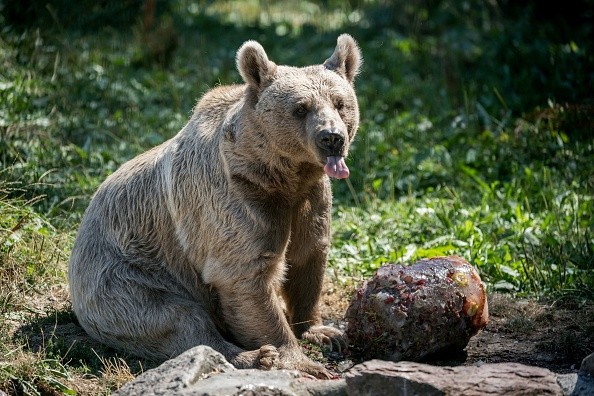New Research helped Washington State University researchers to unlock potential genetic keys to bear's insulin control and may contribute to treatment for human diabetes.
According to the Research, scientists from Washington State University studied and observed thousands of changes in the bear's gene expression as they hibernated. The study is available in Science Daily published on September 21, 2022, and iScience journal.
The secret of the bears on how it maintains its body after eating and gaining enormous weight sparked curiosity among scientists. Without moving for months, bears' bodies are insulin resistant.
In observing bears, the researchers managed to narrow down to eight proteins found studying the hibernating bears.
Joanna Kelley, a WSU evolutionary geneticist and corresponding author, explained that eight proteins work independently or together to maintain hibernating bears' insulin sensitivity and resistance.
Kelley said that the eight proteins have human homologues and are not just unique to bears.
What is amazing is the findings can translate to studies in treating human diabetes.
Research process

According to Blair Perry, the study's co-first author and a WSU post-doctoral researcher, the Research have inherent value in the diversity of life and how it makes us unique as humans.
The research looked into the bears from Washington State University Bear Center.
Furthermore, the study explained that the research team analyzed the changes in the cell structures of hibernating bears exposed to blood serum from grizzly bears.
- The cells and blood serum were from the bears in their active hibernation and uninterrupted hibernations after being fed with honey water.
- Then, the bear samples were combined with different serums and cultures to determine if they were genetic changes.
- The researchers found that the bear's mid-hibernation feeding period showed the most key proteins.
The study noted that bears don't move in or during their hibernation period, which they usually prefer not to eat, urinate or defecate. The researchers took the opportunity to feed bears with honey water, showing that extra sugar could disrupt bears' hibernation.
Furthermore, the researchers observed remarkable Research. According to the article, the serum from disrupted hiberation was put into regular hibernating bears and showed that gene activity changes are similar to active season cells.
Insulin resistance
Bair Perry, the study's co-first author, and a WSU post-doctoral researcher stressed that the progress in the Research could offer a better understanding of insulin resistance in bears.
Diabetes
The World Health Organization (WHO) explained that diabetes is a chronic disease triggered when the pancreas fails to produce enough insulin or hormone-regulating blood glucose. The effect can result in serious health risks and damage to the body.
Moreover, the WHO revealed record reveals increasing cases of diabetes, from 108 million people with diabetes in 1980 to 422 million in 2014. It has become a major cause of kidney failure, limb amputation, and heart attacks.
In 2019, kidney disease caused by diabetes reached about 2 million deaths.
As a result, the WHO advises keeping a healthy lifestyle, maintaining physical activity, and seeking immediate treatment for complications.
Related Article: Mexico: Town Locals Torture 4-Month-Old Black Bear Cub to Death
For more similar stories, don't forget to follow Nature World News
© 2025 NatureWorldNews.com All rights reserved. Do not reproduce without permission.





